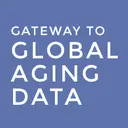
Resources for economics students to learn statistics
Read a summary using the INOMICS AI tool
A subject that many new economics students – and some older economics students too – struggle with is statistics. Statistics are an essential tool for economics, allowing data analysis and modelling to be accurate and mathematically correct. More broadly, statistics are of great importance in all of our daily lives.
However, if your background is more in social sciences than in mathematics, statistics can be a challenging subject because it is unfamiliar. Not only are there new concepts and terms to learn, but also the quantitative approach of mathematics differs from the argumentative approach of most social science subjects. Not to mention the assignments, which are likely in the form of short answer questions and tasks rather than essays or longer form answers.
 If you're an economics student and are struggling with statistics, however, you don't need to despair! In addition to the statistics courses that will almost certainly be a part of your studies, there are many more resources out there which can help you learn. In this article, we'll go through some of the different resources that are available to help you learn statistics.
If you're an economics student and are struggling with statistics, however, you don't need to despair! In addition to the statistics courses that will almost certainly be a part of your studies, there are many more resources out there which can help you learn. In this article, we'll go through some of the different resources that are available to help you learn statistics.
Websites
When there is a particular topic you need to understand or a specific technique that you want to use, then you can quickly find information online. If you just need a formula or an explanation of a term, then Wikipedia can be surprisingly helpful, as some of their statistics pages are quite a high level. But for more in-depth knowledge, then you want a speciality statistics site. Blogs are also a useful source of knowledge.
One useful site is Discovering Statistics, which is the site run by British professor Andy Field. It has all of the information on statistics that an average undergraduate would need, and topics are explained in a funny and easy to read way. The big advantage of this site is that it is written in plain English, with no jargon or difficult to understand terminology. If you're more of a words person than a mathematics person, then this site will suit you well.
Another great site is Stat Trek. This site has tutorials, tools, and tables as well as information on statistics. It is aimed at advanced high school students, but will cover most of what undergraduate students need to know as well. Doing tutorials that let you work a problem through from the beginning to the end is an excellent way to build your confidence at working with statistics.
Finally, Simply Statistics is a good resource for more advanced students. This site has a blog with thoughtful blog posts about data science plus interviews, information on conferences, and links to courses at online learning institutions like Coursera or courses hosted independently by other academics.
Suggested Opportunities
- Summer School
- Posted 3 days ago
Fundamentals of Graduate Economics and Finance
Starts 22 Jun at Department of Economics, University of Oxford in Oxford, United Kingdom- Professional Training Course, Supplementary Course, Online Course
- Posted 4 days ago
Meta-Analysis in Stata - Live Online Training
Starts 16 Apr at TStat Training
Podcasts
Something to remember is that learning statistics isn't only about memorising equations or specific statistical terms. It also requires a broad understanding of mathematics, probability, and numerical accuracy. In order to build your broader knowledge, you can turn to resources like podcasts. Most podcasts are more fun and casual than textbooks, but that doesn't mean they aren't useful learning tools. Plus you can listen to them while you travel or while you're doing jobs around the house, allowing you to learn in this downtime.
One of the most popular statistics podcasts is More or Less: Behind the Stats from the BBC. This podcast digs into a statistics topic each episode, such as recent episodes on vaccines and herd immunity, assessing the value of foreign aid, and how to calculate mortality following a natural disaster.
The podcast Partially Derivative ended in 2017, but there is still a big archive of episodes available. This podcast covers the “data of everything” with a specific interest in computing, and looks at the data related to topics like AI, deep learning, and bots.
Finally, a useful podcast hosted by two data scientists is Not So Standard Deviations. They discuss the latest news in the field of data science and dive in depth on topics like the use of statistics program R, books in the field, and specific examples of topics relevant to statistics. A recent series on the podcast has been a chapter by chapter discussion of the book Design Thinking by Nigel Cross.
Online Courses
If you want more in-depth help with statistics, such as learning a topic before your semester starts or catching up on something important that you missed in your lectures while you were sick, then you can try an online course. There are lots of free online courses available which might include video lectures, slides, exercises, and more to teach you a topic. Sometimes the course materials are available for you to work through at your own pace, but often the materials will form part of a course which you take over a number of weeks.
While online courses can't offer the direct teaching and classroom environment of an in-person course, they can get you up to speed on the essentials of a topic to help boost your confidence and get you over a statistics hump. We have a full article with 10 free online courses in statistics, but we'll break down some of the best here as well.
- Intro to Statistics from Stanford University and Udacity. A course that lasts 8 weeks in total and is aimed at students who have no university experience with statistics at all. The perfect course for new undergraduates who are worried about the statistics component of their course and want to prepare in advance.
- Statistics: The Science of Decisions from San Jose State University and Udacity. This self-paced course typically runs for around 4 months, depending on how fast you work through the material. This is a more advanced course, suited for an undergraduate who has already completed an introductory statistics course. The background required for this course is a basic understanding of proportions (fractions, decimals, and percentages), negative numbers, basic algebra (solving equations), and exponents and square roots.
- Statistical Thinking for Data Science and Analytics from Columbia University and EDX. This course takes 7 – 10 hours per week and runs for 5 weeks, aiming to teach the principles of statistics as applied to data science. It is an introductory course for no knowledge of statistics is required to start.
- Learning from Data from Caltech. This is another self-guided course, so lectures and homework are made available and you work through them at your own pace. The course teaches an introduction to machine learning by focusing on the application of algorithms and applications to big data. Because it is more specialised than the other courses, this would be a great choice for an economics student who is interested in getting into data science but wants to get some experience in the topic before deciding whether to take a full in-person course.
General interest books
As well as textbooks, you can also learn about statistics from more general interest books which are geared towards the public. Obviously, these books will not have the same depth or detail as an academic text, but they are quick and fun to read and help broaden your understanding. If you have a holiday coming up or a bit of free time and you want to learn while also enjoying yourself, try out some of these books:
Moneyball: The Art of Winning an Unfair Game by Michael Lewis is the book which the famous movie about statistics and baseball was based on. It tells the true story of a struggling baseball team who turn to a statistician to help them select new players and to improve their team. These events had a huge impact on how modern sports operate, and the book serves as an example of the power of statistics when put into practice.
Outliers: The Story of Success by Malcolm Gladwell is another famous book which gained a huge public following. It describes the factors that makeup success in various fields, and as a part of this it covers a lot of material about probability, statistics, and economics. It's not a serious academic text but it's a fun and easy read.
Freakonomics: A Rogue Economist Explores the Hidden Side of Everything by Steven D. Levitt & Stephen J. Dubner is a book which aims to make economics exciting. By looking at topics in pop culture, it teaches readers about the essential principles of economics, including statistics. The authors find fun and quirky examples to make their lessons engaging and easy to read.
Looking for a graduate program to continue your studies? Check out our program listings.
-
- Postdoc Job
- Posted 2 weeks ago
Research Associate (Post-doc, f/m) in the fields of applied econometric and distributional analysis
At LISER (Luxembourg Institute of Socio-Economic Research) in Esch-sur-Alzette, Luxembourg
-
- Scholarship, Conference, Prize / Contest
- Posted 2 weeks ago
Call for Applications: Gateway to Global Aging Education Research Hackathon
Between 27 Jul and 30 Jul in Washington, United States
-
- Conference
- Posted 3 weeks ago
Industrial Policies in a Globalized and Financialized World
Between 7 May and 8 May












